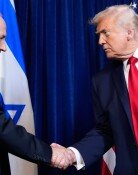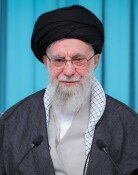A More Confident Diplomacy
In the wake of the sinking of the South Korean naval vessel Cheonan, South Korea and the U.S. will hold a joint military drill in the Yellow Sea. Seoul, however, is poised to back down in the face of opposition from Beijing. Whether China is disparaging South Korea is worrisome because Seoul is excessively wary of and oftentimes patronizes Beijings stance. The South has almost ignored Chinas treatment of North Korean defectors, a matter which affects the lives of the estimated hundreds of thousands of defectors in China. Seoul has also acted extremely passive in handling the planned visit of the Tibetan spiritual leader Dalai Lama and Taiwan. Are officials at the South Korean presidential office and the Foreign Affairs and Trade Ministry being submissive for the sake of national interests or to keep their jobs?
A South Korean prisoner of war, 84, recently fled the North after being held captive there for 60 years. He has been stranded at Seouls mission in Shenyang, China, however, for six months. This is a prime example of South Koreas passive diplomacy. Chinese mistreatment of North Korean defectors is unacceptable given Seoul and Beijings strategic partnership and humanitarian grounds. Yet South Korea has filed no notable appeals to China on these issues, reflecting the sorry state of Seouls diplomacy toward Beijing. The South`s rejection of the Dalai Lamas visit is also inconsistent with international practices. The Buddhist leader visited Japan for the 14th time last month and held talks with U.S. President Barack Obama at the White House in February.
The governments disrespect of Taiwan is even more shameful. Efforts were made to invite President Lee Myung-bak to the annual congress of the Asia-Pacific League for Freedom and Democracy last month in Incheon. Instead of making an appearance, however, he sent a video message. The presidential office and the Foreign Ministry in Seoul opposed the presidents visit to the congress, saying his participation in an event being attended by Taipei could rattle Beijing. South Koreas severing of ties with Taiwan was seen as ruthless and caused immense resentment on the island nation. Yet China signed an economic cooperation framework agreement with Taiwan last month. Seoul has refrained from contacting Taipei given Beijings position yet was stabbed in the back by China, which formed an economic community with Taiwan.
Seoul says ties with Washington have recovered but there is much room for improvement in specific areas. When the U.S. objected to South Korean investment and projects to develop natural resources in Iran, the Foreign Ministry in Seoul took a passive stance over contacting Teheran. South Korea must join the international communitys drive to stop Iran from developing nuclear weapons. Yet if Seoul gives up even economic cooperation, something which has nothing to do with nuclear weapons, how can it protect its national interests? Diplomatic ties are needed under which South Korea can say what it needs to even to an ally as close as the U.S.
South Korea looks at the sinking of the Cheonan by a North Korean torpedo attack from the narrow perspective of inter-Korean ties. The U.S. and China, however, see this incident under the context of their respective global strategies. If Seoul continues to pursue diplomacy that is excessively wary of superpowers interest, it could become a victim of the global strategies envisioned by the U.S. and China. The government needs a more confident diplomacy that puts national interests as the top priority.







